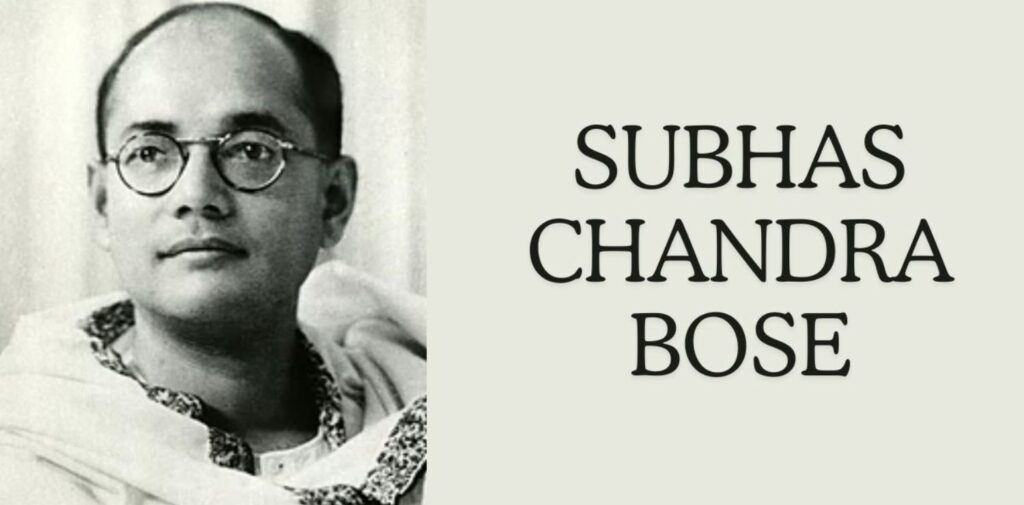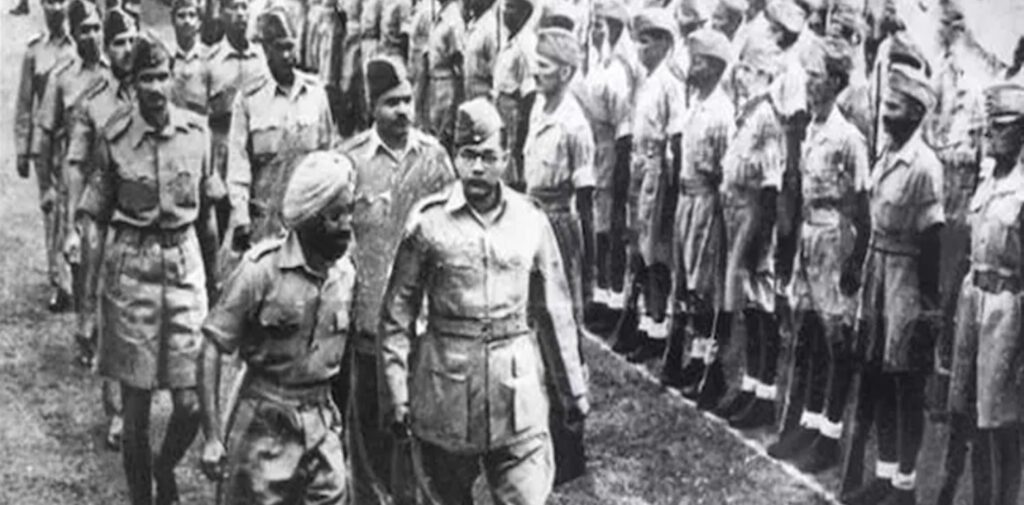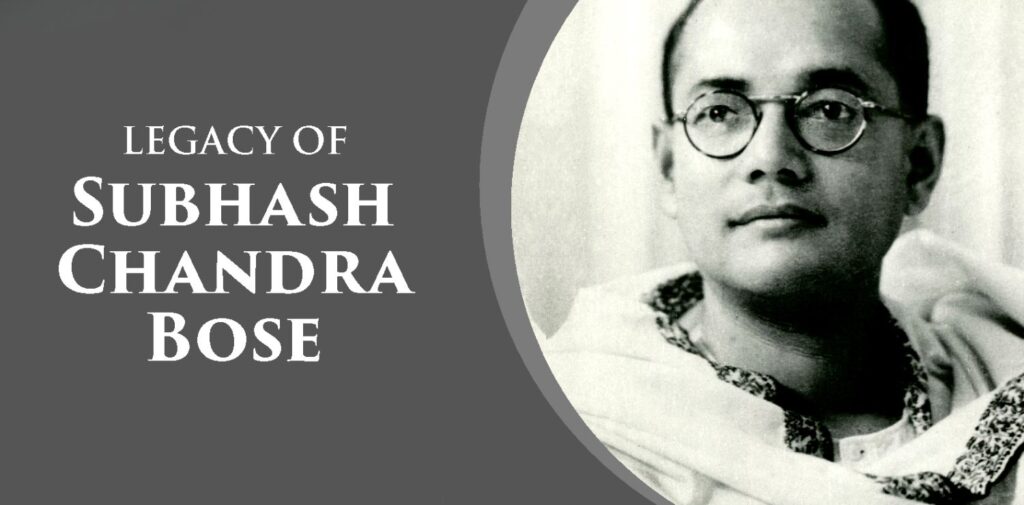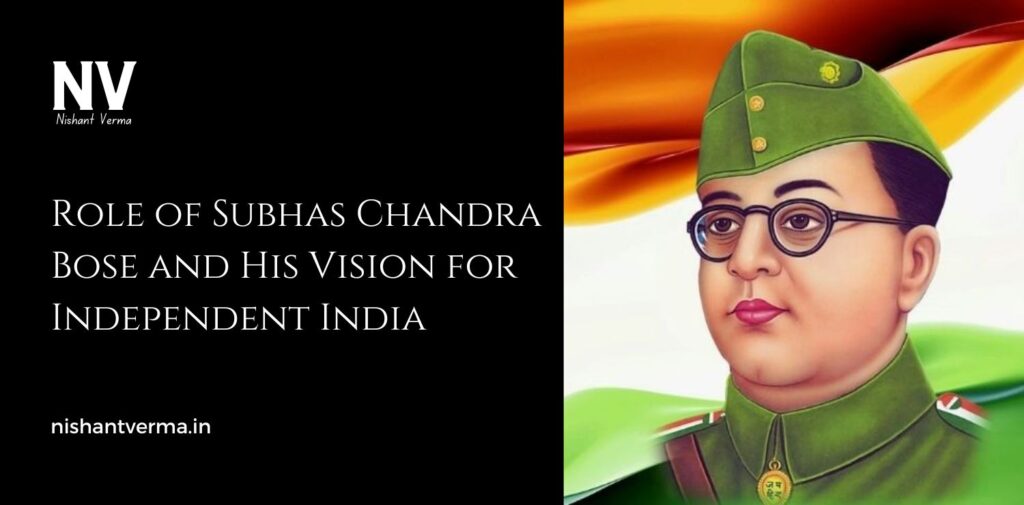Subhas Chandra Bose is one of the most respected and remembered heroes of India’s freedom struggle. He played an important role in India’s fight for independence from British rule. Known for his bravery, determination, and strong leadership, Bose’s vision for an independent India was unique and inspiring. In this article, we will learn about Subhas Chandra Bose’s life, his role in the freedom movement, and the vision he had for a free India.
Who Was Subhas Chandra Bose?
Subhas Chandra Bose was born on January 23, 1897, in Cuttack, Odisha. From a young age, he was very bright and loved to learn. He studied in Calcutta (now Kolkata) and later went to England to become a civil servant. However, when he saw the suffering of Indians under British rule, he decided to leave his career and dedicate his life to the fight for India’s freedom.
Subhas Chandra Bose believed that India’s independence could not be won through peaceful means alone. He thought that strong action was needed, and he became one of the most important leaders to take up this cause.

Bose’s Early Life and Inspiration
Subhas Chandra Bose was born into a wealthy family, but he was deeply affected by the poverty and hardships faced by common people in India under British rule. From a young age, he felt that India should be free and that the British should leave the country.
Bose was inspired by the teachings of great freedom fighters like Swami Vivekananda and Lala Lajpat Rai. These leaders spoke about the importance of self-respect, strength, and unity for the Indian people. Subhas Chandra Bose admired their courage and wanted to do the same for his country.
After completing his studies, Bose joined the Indian National Congress (INC), which was the main political party fighting for India’s independence. He quickly became a prominent figure within the Congress due to his intelligence and passion for freedom.
Bose’s Role in the Indian National Congress
Bose became an important member of the Indian National Congress (INC), and he worked closely with leaders like Jawaharlal Nehru and Mahatma Gandhi. However, he did not always agree with the methods of these leaders.
While Gandhi and Nehru believed in peaceful protests and non-violence, Bose felt that this approach was too slow and did not bring about enough change. He believed that India needed to take more direct action to get rid of the British.
Bose became the President of the Indian National Congress in 1938 and 1939. During this time, he pushed for more radical and forceful measures to achieve independence. However, his views were different from the mainstream Congress leaders, and he was eventually forced to resign from the presidency.
The Formation of the Indian National Army (INA)
Subhas Chandra Bose believed that India could only gain independence through force. He knew that the British were very powerful and would not easily give up control. He also believed that the Indian Army could play a key role in the fight for freedom. But since India was not free, its soldiers were not allowed to fight back effectively.
In 1941, Subhas Chandra Bose took a bold step. He went to Germany and Japan to seek help in fighting the British. In these countries, he found support and formed the Indian National Army (INA). The INA was an army made up of Indian soldiers who had been captured by the Japanese during World War II. Bose convinced these soldiers to join his cause and fight for India’s independence.
Bose gave inspiring speeches to the soldiers of the INA, encouraging them to fight bravely for a free India. He also made the famous call, “Give me blood, and I shall give you freedom!” This slogan motivated many young people to join the Indian National Army and fight against British rule.

Bose and the Azad Hind Government
While leading the INA, Subhas Chandra Bose declared the formation of the Azad Hind Government (Free India Government) in 1943. He made it clear that the aim of this government was to work towards the independence of India and to help the Indian people fight against British imperialism.
Although the Azad Hind Government was not officially recognized by many countries, it became a symbol of the fight for freedom. Bose’s vision for an independent India was clear: he wanted a nation that was strong, independent, and self-reliant. He wanted to end British rule and create a country where every Indian would have equal rights and opportunities.
Bose’s Vision for Independent India
Subhas Chandra Bose’s vision for India was different from many other leaders of his time. He had a clear idea of what an independent India should look like:
- A Strong and United Nation: Bose wanted India to be a powerful nation, united in its fight for freedom. He believed that Indians should stand together and work towards a common goal. His famous slogan “Jai Hind” (Victory to India) symbolized his belief in unity.
- Economic Independence: Bose believed that India needed to be economically self-sufficient. He wanted India to stop depending on foreign countries for its goods and services. He encouraged the development of industries in India and wanted the country to be able to produce its own goods.
- Social Equality and Justice: Bose wanted to make sure that all Indians, regardless of their religion, caste, or gender, had equal rights. He believed in social justice and wanted to create a society where everyone could live with dignity and respect.
- A Strong Military: Subhas Chandra Bose thought that a strong military was essential for the protection of the country. He believed that India needed a powerful army to defend itself and to prevent any foreign powers from taking control of the country again.
- Independence through Action: Unlike some other leaders, Bose believed that India’s independence could not be achieved through peaceful protests alone. He believed that India needed to take action, even if it meant fighting the British with weapons and force. His belief in fighting for freedom led him to form the Indian National Army and seek help from countries like Germany and Japan during World War II.
Bose’s Struggles and Final Days
Despite his bravery and leadership, Bose faced many challenges. The INA’s efforts were not enough to force the British to leave India, and after World War II, the British were able to regain control of many parts of Asia.
Subhas Chandra Bose’s life ended in mystery. On August 18, 1945, it was reported that he died in a plane crash in Taiwan. However, many people believe that he may have survived and continued to work for India’s freedom in secret. Even though the exact details of his death are unclear, Subhas Chandra Bose’s legacy continues to inspire millions of people in India and around the world.

Legacy of Subhas Chandra Bose
Subhas Chandra Bose’s role in India’s freedom struggle is remembered and celebrated to this day. He is a hero to many because of his courage, leadership, and the sacrifices he made for his country. His vision of an independent India, where every citizen is free, equal, and strong, still inspires Indians today.
The Indian National Army (INA) and the Azad Hind Government became symbols of the fight for freedom. Though India’s independence was achieved in 1947, Subhas Chandra Bose’s contributions to the struggle for freedom are still honored by the nation. His famous slogan, “Jai Hind,” is still used by people across India today as a sign of pride in their nation.
Conclusion
Subhas Chandra Bose was one of the most important leaders in India’s fight for independence. His bold ideas, determination, and leadership helped shape the struggle for a free India. While his methods were different from some other leaders, his love for his country and his vision for a strong, united, and independent India are clear in everything he did.
Subhas Chandra Bose is a symbol of courage, strength, and sacrifice. He gave everything for the cause of India’s independence, and his contributions will never be forgotten. Even today, his message of unity, strength, and independence continues to inspire millions of people.




